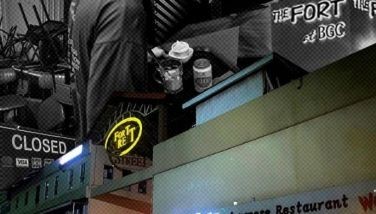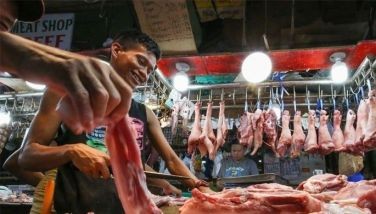SC ruling on Diwalwal an ‘acid test’ for Mining Act — Alvarez
June 30, 2006 | 12:00am
Former Environment and Natural Resources Secretary Heherson Alvarez pushed yesterday for a "win-win" solution in the gold-rush site at Mt. Diwalwal in Compostela Valley, saying the recent Supreme Court ruling on mining operations there is an "acid test" for the Philippine Mining Act of 1995 (Republic Act 7942).
In a statement, Alvarez said a provision in the Mining Act outlining the government’s "priority rights" over lands with vast natural resources, was never tested before until President Arroyo issued Proclamation No. 297 on Nov. 25, 2002 declaring the disputed Diwalwal gold-rush site a mineral reservation area.
"It was the first time the State exercised its powers to take over a mining operation which was never done before," he said.
"It is one of the provisions available (to the executive department) under the Mining Act which the President exercised and which we readily implemented… in 2002," he added.
Last Monday, the Supreme Court ruled that under the law, the government might, on its own, take over mining operations or enter into an agreement with any qualified entity.
"The exercise of this prerogative lies with the Executive Department over which courts will not interfere," it said.
Alvarez quoted Section 4 of the Mining Act as stating that "mineral resources are owned by the State and that their exploration, development, utilization and processing shall be under the government’s full control and supervision."
The law’s Section 5, on the other hand, "states that the State can either directly undertake mining operations or it can enter into agreements with qualified entities," Alvarez said.
He said the primary intention of the government’s takeover in 2002 "was to address the pollution problems in the area, while (also) addressing social equity issues such as the tenure of the small-scale miners, health and the deteriorating peace and order situation."
In September 2002, Alvarez awarded 22 service contracts to some 2,000 small-scale miners who had organized themselves into cooperatives.
Under the scheme, 85 percent of the mining proceeds would go to the miners and the rest to the government.
The government’s 15 percent share, however, was further divided into two percent excise tax, one percent royalty fee for the indigenous peoples, two percent for any prospective claims, five percent management fee for professional mining experts who would lay out plans for the sustainable development of the mines, two percent for environmental remediation and conservation, and three percent for a social development fund.
Citing a report of the Natural Resources Management Development Corp. in June 2005, Alvarez said the government’s total income from Diwalwal since 2002 had reached P44 million, but a loss of P31 million was declared since total expenses had run to P75 million.
In a statement, Alvarez said a provision in the Mining Act outlining the government’s "priority rights" over lands with vast natural resources, was never tested before until President Arroyo issued Proclamation No. 297 on Nov. 25, 2002 declaring the disputed Diwalwal gold-rush site a mineral reservation area.
"It was the first time the State exercised its powers to take over a mining operation which was never done before," he said.
"It is one of the provisions available (to the executive department) under the Mining Act which the President exercised and which we readily implemented… in 2002," he added.
Last Monday, the Supreme Court ruled that under the law, the government might, on its own, take over mining operations or enter into an agreement with any qualified entity.
"The exercise of this prerogative lies with the Executive Department over which courts will not interfere," it said.
Alvarez quoted Section 4 of the Mining Act as stating that "mineral resources are owned by the State and that their exploration, development, utilization and processing shall be under the government’s full control and supervision."
The law’s Section 5, on the other hand, "states that the State can either directly undertake mining operations or it can enter into agreements with qualified entities," Alvarez said.
He said the primary intention of the government’s takeover in 2002 "was to address the pollution problems in the area, while (also) addressing social equity issues such as the tenure of the small-scale miners, health and the deteriorating peace and order situation."
In September 2002, Alvarez awarded 22 service contracts to some 2,000 small-scale miners who had organized themselves into cooperatives.
Under the scheme, 85 percent of the mining proceeds would go to the miners and the rest to the government.
The government’s 15 percent share, however, was further divided into two percent excise tax, one percent royalty fee for the indigenous peoples, two percent for any prospective claims, five percent management fee for professional mining experts who would lay out plans for the sustainable development of the mines, two percent for environmental remediation and conservation, and three percent for a social development fund.
Citing a report of the Natural Resources Management Development Corp. in June 2005, Alvarez said the government’s total income from Diwalwal since 2002 had reached P44 million, but a loss of P31 million was declared since total expenses had run to P75 million.
BrandSpace Articles
<
>
- Latest
- Trending
Trending
Latest
Trending
Latest
Recommended






























